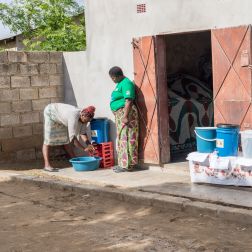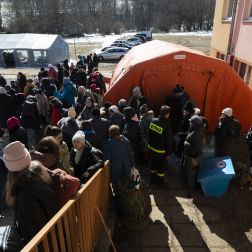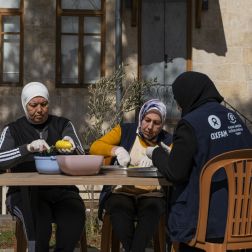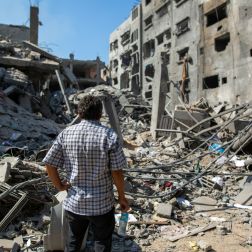- 2 mins read time
- Published: 7th April 2014
Rwanda 20 years on
Twenty years ago, the world stood by and watched as over 1,000,000 people in Rwanda were killed in 100 days. Aid agencies saw what was happening and tried in vain to persuade Western governments to fulfil their obligations and intervene to stop the killing.
Today it is sobering to remember Rwanda and think about what has changed. How is the world responding today to war, conflict and murder?
In short, are the world’s governments any better than they were in 1994 at setting aside selfish interests – or indeed selfish lack of interest – and acting to protect civilians from war and conflict?
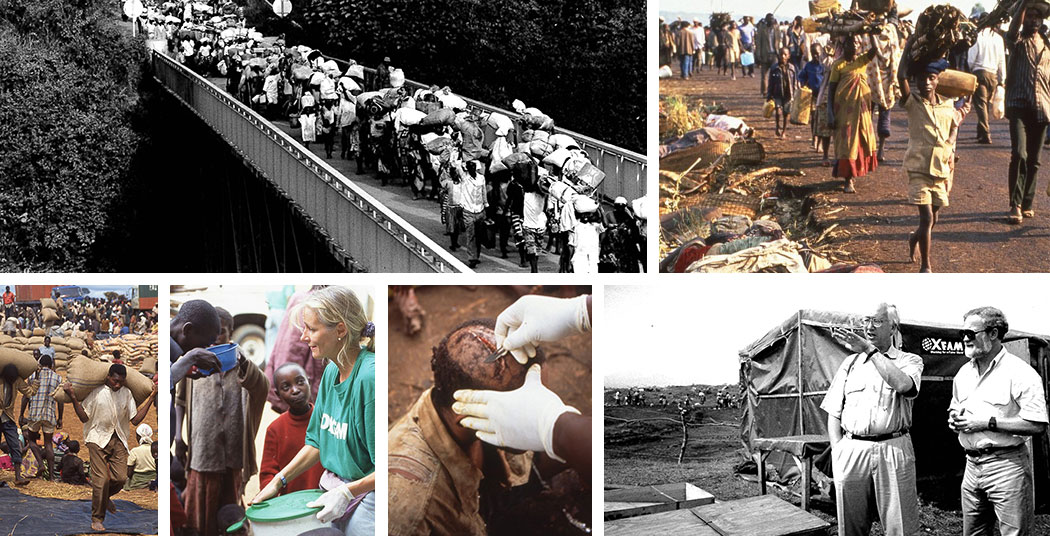
Clockwise from top: Rwandan refugees returning from camps in Tanzania in 1996. Refugees pass by recently dead left at the roadside, Kitali camp, DRC. Rwandan refugees in Tanzania collecting grain 1994. Oxfam staff member with water bucket and Rwandan refugees in DRC 1997. Aid worker treating a head wound in DRC 1997. Photos: Howard Davies/ Oxfam
At first sight, the signs are not encouraging. While there may not have been systematic killings on the scale of the Rwandan genocide since 1994, extreme violence continues, with hundreds of thousands of people killed, raped or living in terror every year.
It’s now more important than ever to ask how well the world is doing in acting to reduce conflicts around the world.
Some things have gotten better. After ten years of NGO campaigning, an Arms Trade Treaty was agreed last year. The UN Security Council now sets about protecting civilians in its peacekeeping operations, far more than it did.
But different countries still give arms to Syria’s conflict. Terrible violence in countries such as the Central African Republic still struggle for media attention. Despite the growth in UN peacekeeping very few rich countries donate their own resources to this effort.
And Oxfam faces growing humanitarian challenges because the world is still not as good as it should be at resolving conflicts.
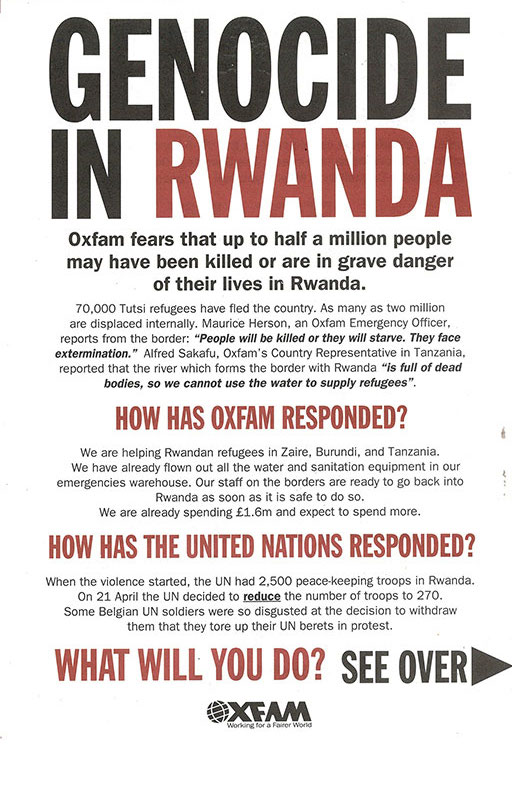
Above: Oxfam Genocide in Rwanda leaflet 1994. Photo: Howard Davies/ Oxfam
Oxfam has been with Rwanda since the 1960s and working inside the country since 1982, delivering humanitarian response, water and sanitation, conflict management, human rights and democratisation and sustainable livelihoods projects especially in the aftermath of the 1994 Genocide.
Rwanda is today a country which has turned itself around and is now achieving impressive growth and stability. Yet massive challenges remain, with nearly half the population living in poverty, needing support to create work in rural and urban areas.
Oxfam is having huge success in Rwanda. We work with local organisations to support farmers to grow their own food, open their own small businesses, train other members of their communities in farming skills and create many jobs in rural areas so that they don’t have to rely on us to provide for them.
Rwanda is a country moving beyond its tragic past to try to build a peaceful future.
The twentieth anniversary of the Rwandan genocide will be a painful moment for millions, especially the Rwandan survivors still trying to heal their shattered lives.
For the rest of us, it should be a time to remember how much more there is still to be done to protect civilians in every corner of the world, from every kind of atrocity.
